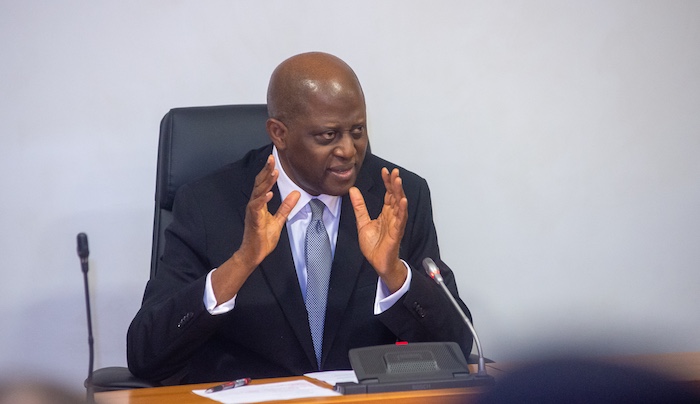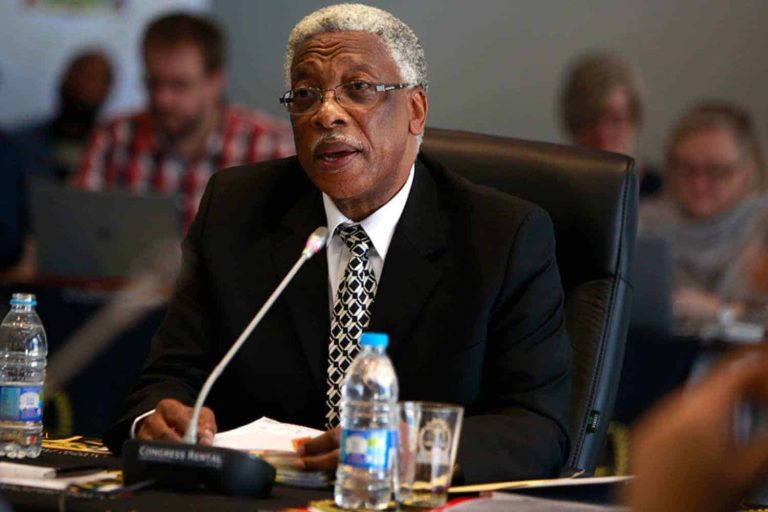
Governor of Central Bank of Nigeria (CBN), Mr. Olayemi Cardoso, on Tuesday, declared that nobody had a monopoly of the economy, stressing that “this economy belongs to all of us.”
Cardoso stated that the progress so far achieved in the past two and a half years, amid bold reforms, must be protected.
He said the general attitude of “I am fine; others can sort themselves out”, will not sustain growth, adding that systemic weaknesses affect everyone.
Cardoso spoke at the opening of the annual CBN Executive Policy Seminar, which was held at the apex bank’s auditorium in Abuja.
He said a situation where the country had a “frightening Ways and Means to GDP ratio should never happen again.”
He said, “We must avoid indiscriminate interventions that yield little result. We cannot sit back and assume that someone else will fix it this economy belongs to all of us.”
Minister of State for Finance, Dr. Doris Uzoka-Anite, revealed that the federal government was currently working to establish a Unified National Framework that will bring together both monetary and fiscal instruments to drive structural transformation.
Uzoka-Anite said at the seminar that based on that understanding, the CBN and the Ministry of Finance had begun to work together with other government institutions towards a coordinated growth agenda.
Cardoso said, “That is why we hold events like this, not because we simply like to talk, but because we must continue to educate, to engage, and to ensure that we stay on course. I have no doubt that Nigeria is moving in the right direction. We will get there, but we must remain focused, disciplined, and united in our resolve.
“We must defend what is ours and safeguard the interests of future generations. This is a collective effort. We must all contribute to baking a bigger pie, expanding our GDP relative to our population.”
The CBN governor reaffirmed the apex bank’s commitment to credible policies, transparent markets, and sound governance, all of which had helped to restore investor confidence in the financial system since he assumed office in 2023.
Cardoso said price stability remained central to CBN’s policy framework, anchored on inflation targeting, stating that credible inflation-targeting regime enhances predictability, guides market expectations, and anchors long-term investment.
He said, “Investors avoid uncertainty, the greater the predictability, the stronger the incentive to invest. Once you get the fundamentals right, investors naturally gravitate toward your market.
“Boosting local production and industrial competitiveness is equally crucial. Collaboration with fiscal authorities to reduce costs and incentivise production remains a key imperative.”
He said fast-tracking export growth, particularly through services and the creative industries, further highlighted the country’s emerging strength in music, film, design, and digital services.
Cardoso said, “We are proud to have supported the journey that led to the launch of the Nigeria-US Data Deal on October 1st, a major platform for our creative talents to reach global audiences.”
Cardoso pointed out that enhancing access to finance for SMEs remained a priority for the bank, and reaffirmed its commitment to expanding access through innovative credit frameworks, improved risk-sharing mechanisms, and strengthened credit infrastructure.
In addition, the CBN governor said through the reforms he implemented, Nigerians would no longer need connections or personal influence to transact or get their work done at the central bank.
According to him, “When I assumed responsibility as Governor, I made a promise that Nigerians would no longer need connections or personal influence to transact or get their work done at the Central Bank. You do not need to know the Governor, a Deputy Governor, or any Director to access legitimate services.
“Yes, where issues arise, they will be addressed appropriately, but the era of everyday personal lobbying at the CBN is over. The economy belongs to everyone, and no one should feel they have a monopoly over it.”
He stated that the seminar offered yet another opportunity for introspection and refinement of policy options, and encouraged all participants to engage actively.
He stated, “The insights gathered here will inform our future policies and shape the next phase of reform implementation. Your collective contributions are vital to shaping Nigeria’s macroeconomic future.”
In her remarks, Uzoka-Anite said the federal government will continue to improve Nigeria’s economic competitiveness and its social and developmental impact.
She said, “Our efforts must remain aligned toward clear targets, particularly reducing the cost of energy, shortening the time required to register businesses, ensuring secure payments, and simplifying interactions with government agencies.
“As we work toward these targets, we have recognised that the challenges we face are not cyclical but structural. Traditional monetary tightening alone cannot deliver the desired results. Therefore, we must complement it with coordinated fiscal expansion that can produce lasting impact.”
While highlighting the various initiatives of the government to reset the economy, she said the task ahead was to grow the nation and boost revenue mobilisation.
James Emejo



